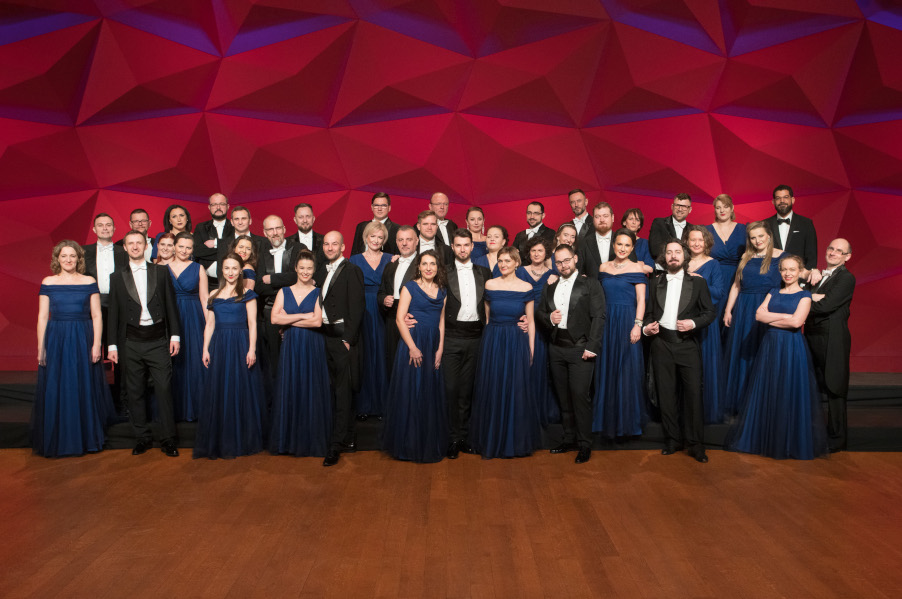Four hundred years after William Shakespeare's death, it is easy to forget that the global cult of his works is not an eternal phenomenon. During his lifetime, the Stratford-born playwright was considered to be on his equal footing in England, such playwrights as Ben Jonson and Christopher Marlowe, and he began to be widely respected there as a genius only after his death – at the end of the 17th century. In Poland, few had heard of his works in the 18th century, and the first to stage Hamlet was Wojciech Bogusławski in Lviv in 1797. Due to the writer's changing popularity, we cannot say that the texts of the author of King Lear were musically overused in the 20th and early 21st centuries. Composers are still eager to reach for them today.
The NFM Choir, conducted by Lionel Sow, will present works by artists from Finland, Poland and the United States, alongside pieces by British composers, to Shakespeare’s words. The concert will begin with a performance of Three Shakespeare Songs by Ralph Vaughan Williams. This artist, who often refers to English folklore and Old English music, enjoys the reputation of a national composer in his country. In this work from 1951 he used fragments of The Tempest and A Midsummer Night's Dream. Writing his songs, including Full Fathom Five for fragments from The Tempest, the Finnish composer Jaakko Mäntyjärvi was certainly helped by his English studies at the University of Helsinki. His education allowed him to work as a translator in parallel with his composing activities.
John Tavener, a leading English composer of sacred music of the second half of the 20th century, when writing Song for Athene, juxtaposed excerpts from Hamlet with the words of an Orthodox funeral service. Thanks to this, he found a language of religious meditation in Shakespeare’s work. This moving composition was performed at the funeral of Princess Diana. The leading contemporary composer of sacred music in Poland is Paweł Łukaszewski. He wrote settings of excellent Shakespearean sonnets – Sonnet XXVII (Weary with toil, I haste to my bed) and Sonnet LX (Like as the waves make towards the pebbl’d shore). Contrary to the title Songs and Sonnets, the jazzman George Shearing did not set any of Shakespeare’s sonnets. In his piece, he focused on fragments of Shakespeare’s comedies. He also used a love poem by Christopher Marlowe entitled The Passionate Shepherd t His Love.

